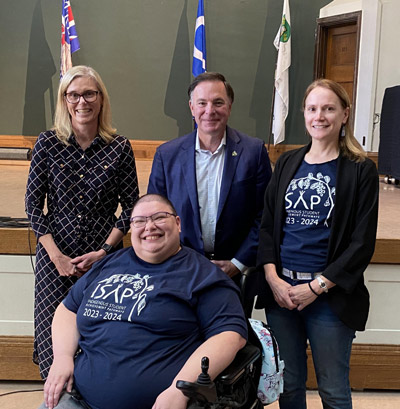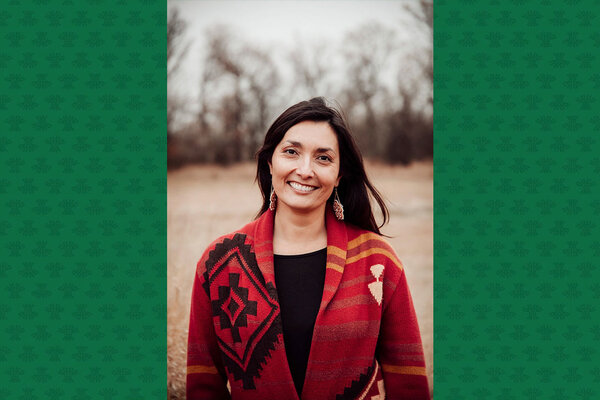
How to find your place as an Indigenous university student
Advice from USask leadership award winner Eileen Lennie-Koshman
By Chris Putnam
Eileen Lennie-Koshman wants other Indigenous students at the University of Saskatchewan (USask) to learn from her experiences.
Shortly after graduating high school, Lennie-Koshman enrolled at USask and became the first in her family to attend university, but she didn’t finish her degree.
“If I could go back and tell my 20-year-old self, ‘Stay in university. Stay the course and get your degree,’ I would. But unfortunately, I didn’t come to that realization until I was about 15 years into my adulthood and my other career,” said Lennie-Koshman, who is Métis and originally from Wilkie, Sask.
After working for a decade and a half as an early childhood educator, Lennie-Koshman felt she was ready to return to USask. She is now a fourth-year student in the College of Arts and Science pursuing a Bachelor of Arts in Indigenous studies with a minor in history.
This spring, Lennie-Koshman was the first-ever recipient of the Peter Stoicheff Indigenous Student Achievement Pathways (ISAP) Undergraduate Leadership Award. Winners of this award are invited to give a talk to undergraduate Indigenous students.
Here are some tips for finding your place as an Indigenous undergraduate student in the College of Arts and Science that Lennie-Koshman shared at her talk in September.
1. Get involved
“Find your tribe. Find your people. Find the people that support you. Find the people that want to root for you. Find the people that have your best interests at heart. Make a strong group of friends. Just as you have a family at home, now you'll need to find a new family at school.”
2. Apply for funding
“The university has so many grants and bursaries that they want you to apply for that are just for Indigenous students, because they want to partner with you and help you find your way.”
3. Talk to your professors
“If you find a professor that you're inspired by, that you want to work with, make time to meet with them. I've never had a professor tell me that they don’t want to talk to me. They're always really open and honest and they have really good conversations with students that want to sit down and talk to them.”
4. Never be ashamed of who you are
“Every piece of you makes up who you are. So don't hide your identity—stand proud in it.”

Lennie-Koshman balances her studies with volunteer activities and being a mother to her 15-year-old son. Her many volunteer roles have included mentoring students in ISAP and working as a peer health promoter with the USask Student Wellness Centre.
“When I came back to university as a mature learner, I said to myself, ‘I'm going to make it my mission to guide all these first years and do my best to get them settled into their experience,” she said.
Lennie-Koshman has been an inspiration to those in ISAP and she was instrumental in building community within the program during the challenging pandemic years, said Dr. Sandy Bonny (PhD), ISAP team lead.
“Eileen is a strong advocate not only for herself but for her fellow students. She brings an equity and inclusion lens to interactions as a mentor, and embodies traits of openness, resilience and generosity to others.”
The Peter Stoicheff ISAP Undergraduate Leadership Award is a new student award created by an anonymous donor in honour of USask’s president, Dr. Peter Stoicheff (PhD). The award provides $3,500 each year to an Indigenous College of Arts and Science student who has shown outstanding academic performance, community contributions and leadership.
The next application deadline for the award is Feb. 15, 2024.
Together we will support and inspire students to succeed. We invite you to join by supporting current and future students' needs at USask.


